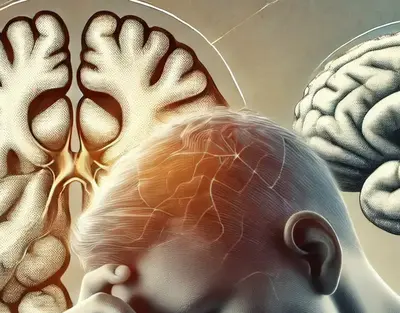Imagine a 52-year-old woman named Karen, who has been dealing with chronic lower back pain for several years. Lately, she’s noticed more than just physical discomfort. Karen struggles to remember simple things—where she left her keys, appointments she needs to keep. Her concentration fades quickly, and sometimes she feels like her mind is in a fog. While she initially blamed these cognitive problems on stress, there’s growing evidence that chronic pain itself can affect brain function.
Symptom Breakdown:
Chronic pain doesn’t just hurt physically; it can have a direct impact on mental sharpness, leading to cognitive decline. Symptoms of cognitive decline in people with persistent pain can include:
- Memory loss: Forgetting details or events more frequently.
- Difficulty concentrating: Struggling to focus on tasks or losing attention quickly.
- Mental fatigue: Feeling mentally drained after short periods of activity.
- Confusion or disorientation: Occasionally feeling unsure of where you are or what you were doing.
Diagnostic Path: How Pain Impacts the Brain
Researchers have long been studying the connection between chronic pain and brain function. The human brain isn’t designed to handle ongoing pain signals without consequence, and these signals can gradually wear down certain cognitive processes. The reasons behind this include:
- Constant Stress on the Brain:
Persistent pain forces the brain to stay in a heightened state of awareness. Over time, this constant alertness leads to fatigue, especially in areas responsible for memory and decision-making. - Inflammation:
Chronic pain can lead to prolonged inflammation in the body, which has been shown to affect the brain. Studies indicate that this inflammation can damage neurons, contributing to memory problems and slowed cognitive function. - Structural Changes:
Brain imaging studies reveal that people with chronic pain often experience shrinkage in regions of the brain such as the hippocampus, which is critical for memory and learning. This can explain why cognitive abilities deteriorate over time when pain persists. - Emotional Strain:
Pain is physically and emotionally taxing. Depression and anxiety, both common in people with long-term pain, further strain cognitive functions like focus and mental clarity.
Deep Dive: Chronic Pain and the Cognitive Decline Connection
Chronic pain can change brain activity. Studies show that ongoing pain affects the prefrontal cortex, the part of the brain involved in decision-making, reasoning, and cognitive flexibility. Moreover, persistent pain may divert resources from other areas of the brain, like memory processing and problem-solving, in favor of dealing with pain.
In Karen’s case, the cognitive decline she is experiencing is tied directly to her chronic pain. This is more than just distraction due to discomfort—her brain is rewiring itself to prioritize dealing with pain over other cognitive functions.
Treatment Comparison: Managing Pain to Protect Brain Function
While there’s no easy fix, reducing the cognitive impact of chronic pain is possible with the right strategies:
- Medical Treatments for Pain Management:
- Physical Therapy: Targeted exercises that reduce pain and strengthen muscles can help decrease the cognitive strain caused by ongoing discomfort.
- Medications: Non-opioid pain relievers and anti-inflammatories can help reduce chronic pain, alleviating the constant signal overload on the brain.
- Procedures: In some cases, nerve blocks or surgery may be recommended to reduce or eliminate pain.
- Cognitive Exercises and Stimulation:
- Cognitive Behavioral Therapy (CBT): Can help reframe the relationship between pain and mental clarity, improving focus despite ongoing discomfort.
- Puzzles and Brain Games: Stimulating the brain with puzzles and challenges may help slow cognitive decline.
- Lifestyle Adjustments:
- Diet: Anti-inflammatory foods such as omega-3-rich fish, nuts, and leafy greens may support brain health and reduce inflammation.
- Physical Activity: Regular movement, within safe limits, improves circulation and can protect brain function over time.
Outcome Story: A Path to Clarity
Let’s look at the case of another individual, 45-year-old Michael, who suffers from neuropathic pain after a leg injury. Initially, Michael didn’t notice any mental changes, but after a few years, his memory and focus began to slip. After consulting with his doctor, Michael started a comprehensive pain management plan that included physical therapy and cognitive stimulation exercises. Over time, not only did his pain decrease, but he noticed that his focus and clarity gradually returned.
Conclusion: Understanding the Link Between Pain and Cognitive Decline
Persistent pain can do more than just harm the body—it can also erode mental sharpness and cognitive function over time. Recognizing the link between chronic pain and cognitive health is essential for protecting your brain. If you’re experiencing ongoing pain and cognitive problems, it’s crucial to seek professional guidance and take steps to manage both issues effectively.
Useful Table: Causes of Cognitive Decline in Chronic Pain Patients
| Cause | Impact on Brain |
|---|---|
| Constant brain stress | Mental fatigue, memory loss |
| Inflammation | Neuron damage, cognitive slowdown |
| Brain structural changes | Shrinkage in memory regions |
| Emotional strain (depression/anxiety) | Difficulty concentrating |









